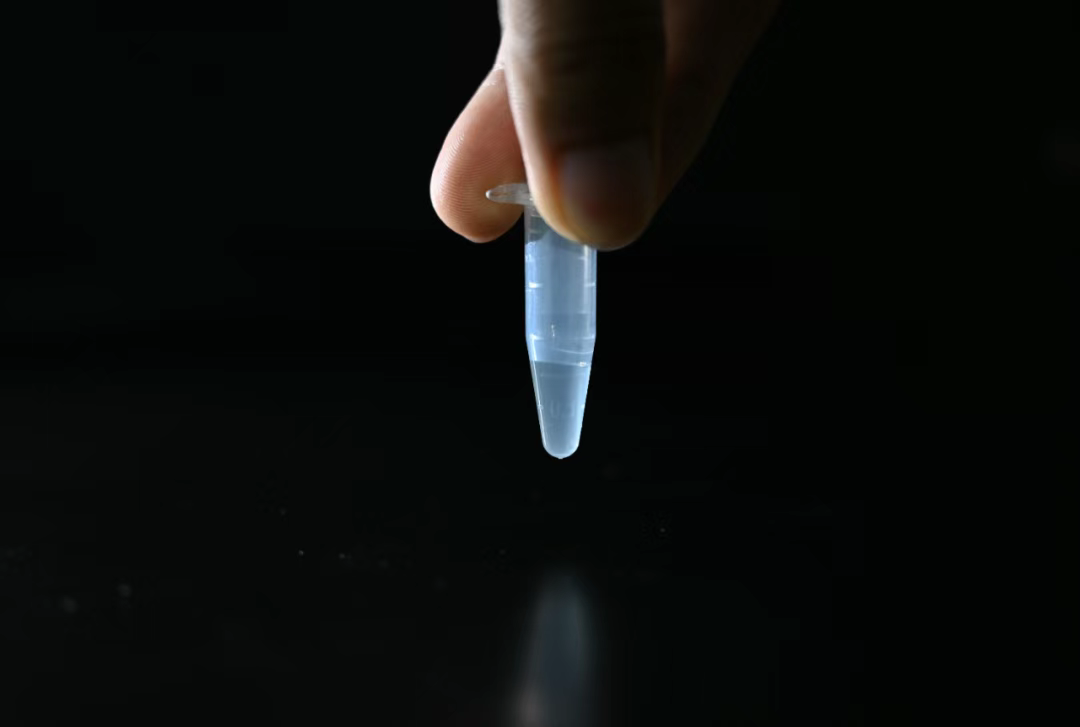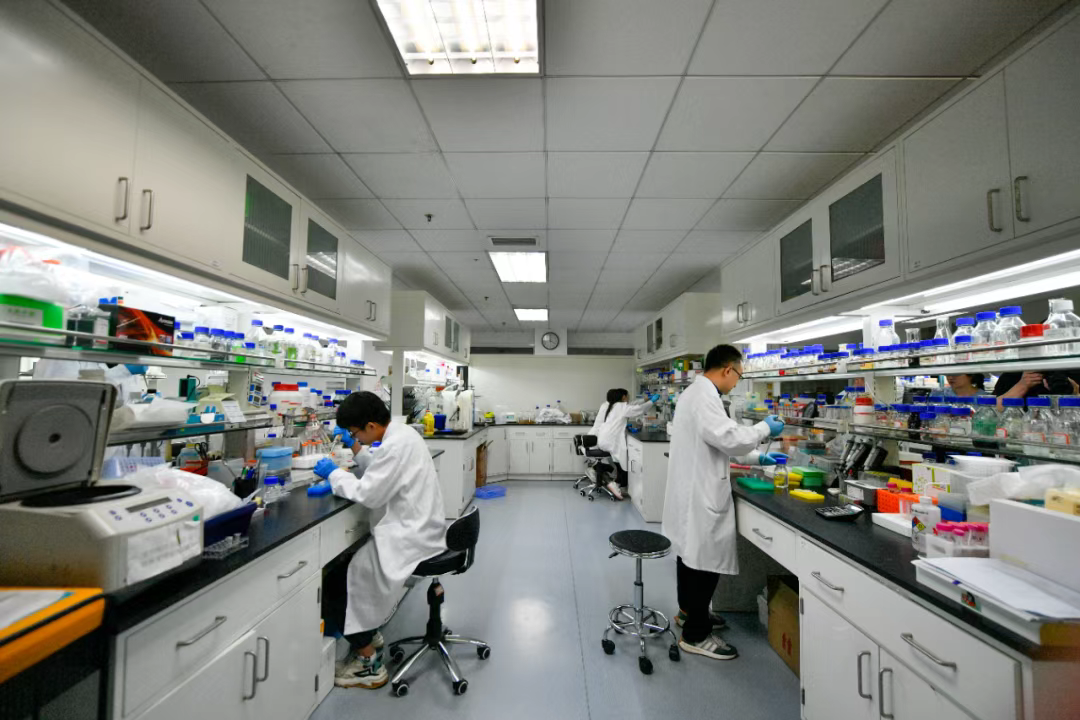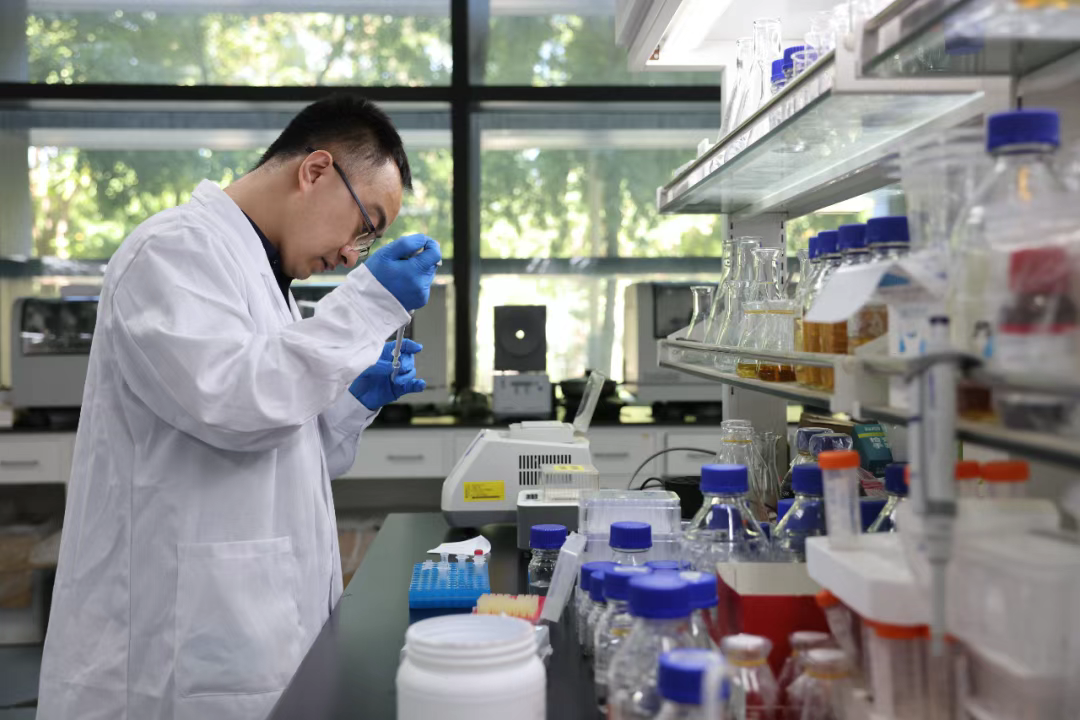
The latest research results published by the famous academic journal "Science Bulletin" on the 15th show that Chinese scientists have realized the precise synthesis from carbon dioxide to sugar in the laboratory, and the artificial synthesis of sugar has taken a key step.

A sample of a synthetic hexose solution taken at the laboratory of Tianjin Institute of Industrial Biotechnology, Chinese Academy of Sciences (photographed on August 13). Photo by Xinhua News Agency reporter Sun Fanyue
Sugar is the main source of energy needed by the human body. Synthetic sugar is the direction that the scientific community has been striving for in recent years. Prior to this, many scientists around the world have made contributions to varying degrees.
The research results were completed by the research team of Tianjin Institute of Industrial Biotechnology, Chinese Academy of Sciences and Dalian Institute of Chemical Physics, which lasted more than two years. According to Yang Jiangang, the first author of the paper, the team prepared high-concentration carbon dioxide and other raw materials in a certain proportion in the reaction solution, and under the action of chemical catalysts and enzyme catalysts, four kinds of glucose, allulose, tagatose, and mannose were obtained. Hexose. Hexose is a general term for sugars that are widely distributed in nature and are most closely related to the nutritional metabolism of the body.

In the laboratory of Tianjin Institute of Industrial Biotechnology, Chinese Academy of Sciences, the scientific research team is doing experiments on the artificial synthesis of hexose (photographed on August 13). Photo by Xinhua News Agency reporter Sun Fanyue
The reaction time for the whole set of experiments was about 17 hours. Compared with the traditional way of extracting sugar by planting crops such as sugar cane, the time for obtaining sugar has been spanned from "years" to "hours".
The efficiency of sugar synthesis this time is 0.67 grams per liter per hour, which is more than 10 times higher than the known results. The carbon fixation synthesis efficiency of glucose reaches 59.8 nanomoles of carbon per minute per mg of catalyst, which is the highest level of artificial sugar known at home and abroad.

In the laboratory of Tianjin Institute of Industrial Biotechnology, Chinese Academy of Sciences, associate researcher Yang Jiangang is doing experiments on artificial synthesis of hexose (photographed on August 13). Photo by Xinhua News Agency reporter Jin Liwang
The research has also achieved precise control of artificially synthesized sugars. "By controlling the different catalytic effects of different enzymes, it is theoretically possible to synthesize almost any type of sugar." Yang Jiangang said.
Manfred Reitz, academician of the German Academy of Sciences, commented on the paper that converting carbon dioxide into sugar is a particularly challenging task. This achievement provides a flexible, versatile and efficient route to sugar synthesis, opening a door for green chemistry.
(Original title "Chinese Scientists Achieve Precise Total Synthesis from Carbon Dioxide to Sugar")